What does it take to build a thriving healthtech start-up?
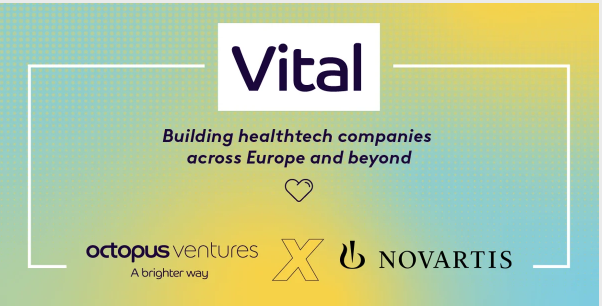
The European healthtech ecosystem is changing, with the crisis of COVID-19, ageing populations and shifting patient expectations driving the continent’s healthcare systems towards new solutions. The speed of that change has been unprecedented, which is why, earlier this year, we published our report, The Resilience of Early-Stage European Healthtech. We wanted to offer a granular look at the investment landscape, unpack the trends shaping healthtech and ask what the future might hold.
Last month, we added an important coda to that report when, in collaboration with Novartis, we convened 150 pioneering healthtech founders, investors and healthcare stakeholders to ask just what it takes to build a thriving, future-shaping healthtech business in Europe.
While the macroeconomic landscape remains challenging, Vital offered real hope for the future of healthtech. We’re proud to say that more than half of our panellists were female, while attendees were very nearly split 50-50. It’s a strong signal that the healthtech ecosystem is expanding to include a plurality of voices – the better for tackling the challenges that lie in the road ahead.
The event brought together 23 panellists, who shared their points of views across three panels and three break-out sessions. Topics included: ‘Expanding to new markets/geographies’, ‘Navigating regulatory in UK and Europe, ‘Building resilient teams in uncertain times’, and ‘Harnessing AI to improve healthcare’.

Voices of experience
Throughout the afternoon we heard from some of the most experienced voices in healthcare, with keynotes from Michael Gorton, Pam Garside and Lord Prior of Brampton. Key themes emerged, among them the role of the individual in securing start-up success.
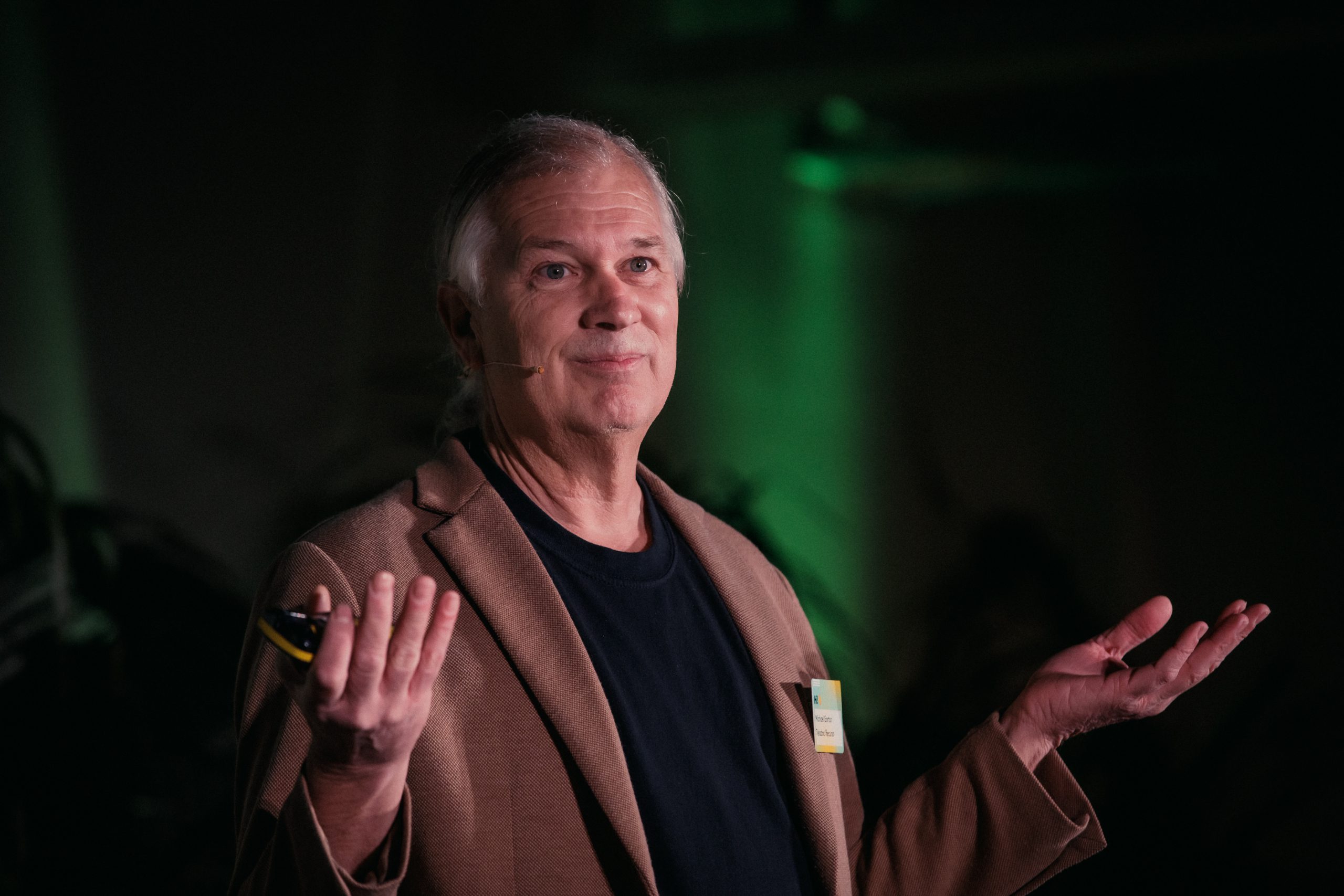
As the founder of 15 companies, including Teladoc and Recuro Health, Michael speaks with authority when it comes to offering advice to start-ups. He emphasised the role of persistence and focus. Founders, Michael argued, need to know the opposite of fear, maintain a clear vision for the future and leave their egos at the office door.
Pam Garside, chair of the Cambridge Angels, offered complementary insights from the investor end. In her experience, she said, angels back a founder as much as they back a solution. Enthusiasm and responsiveness are indispensable for building angels’ faith in founders.
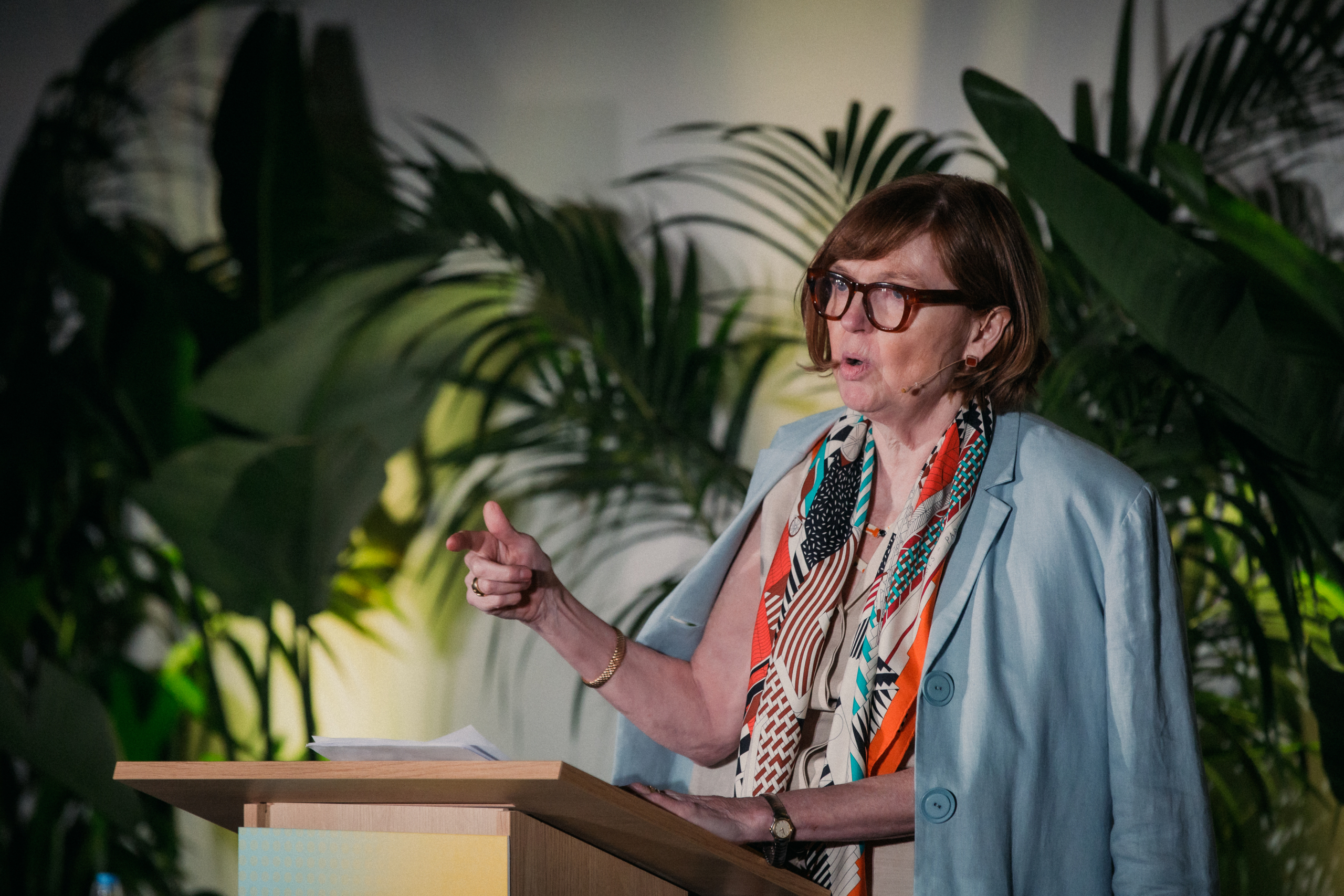
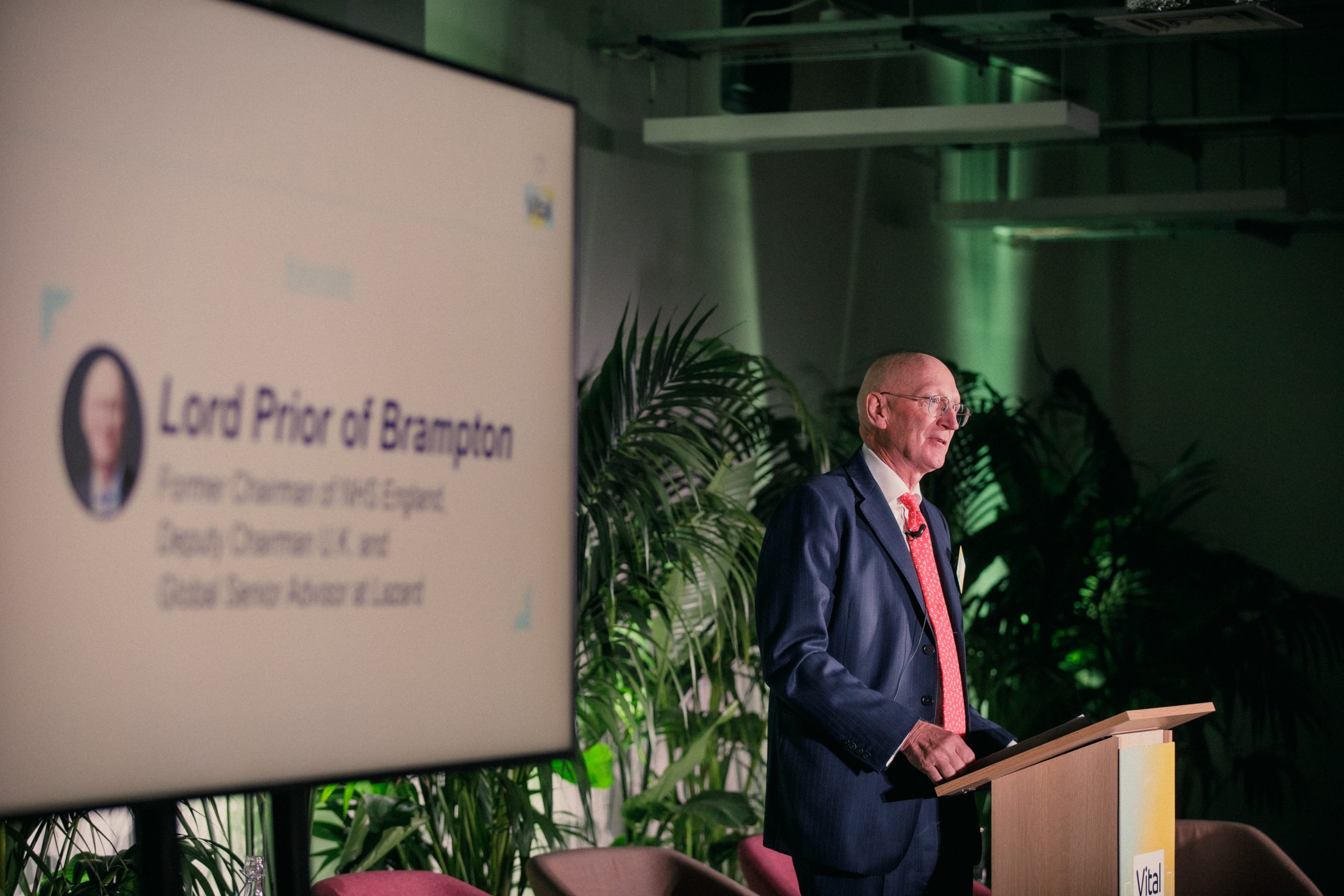
Getting the right investor, as Lord Prior, former Chairman of NHS England, explained, is crucial. The right shareholders won’t just understand a start-up as an investment asset – they’ll bring their expertise and network to bear on making it a success. He highlighted the importance of building the right support structure around a founder, building the right board and selecting the right chair for the job.
Practical advice

Vital also offered attendees and participants the chance to explore some of the key questions impacting healthtech founders, such as the every-day challenges of building a resilient team in uncertain times, the ways AI stands to reshape the ecosystem, and how to navigate regulatory in UK and Europe.
The first of these questions was dealt with head-on in a breakout session chaired by Octopus Ventures’ own head of people and talent, Laura Wilming. Everyone agreed that great teams are built around natural leaders. In a time of uncertainty, people gravitate towards calm decision-makers.
With that said, the session emphasised the dangers of complacency: mistakes get made from a position of psychological safety. Thriving healthtech businesses will be built by the teams and founders who aren’t afraid of fresh challenges, with the ability to react and adapt at speed.
The demand for adaptability reinforces a central truth about healthcare: it’s an intrinsically messy business – the stakes are high and incentives convoluted. Building healthcare systems capable of meeting the rapidly shifting needs, and unique demands, of Europe’s respective populations, while releasing clinical capacity and maintaining the highest-possible standards of patient safety is an incredibly complex undertaking.
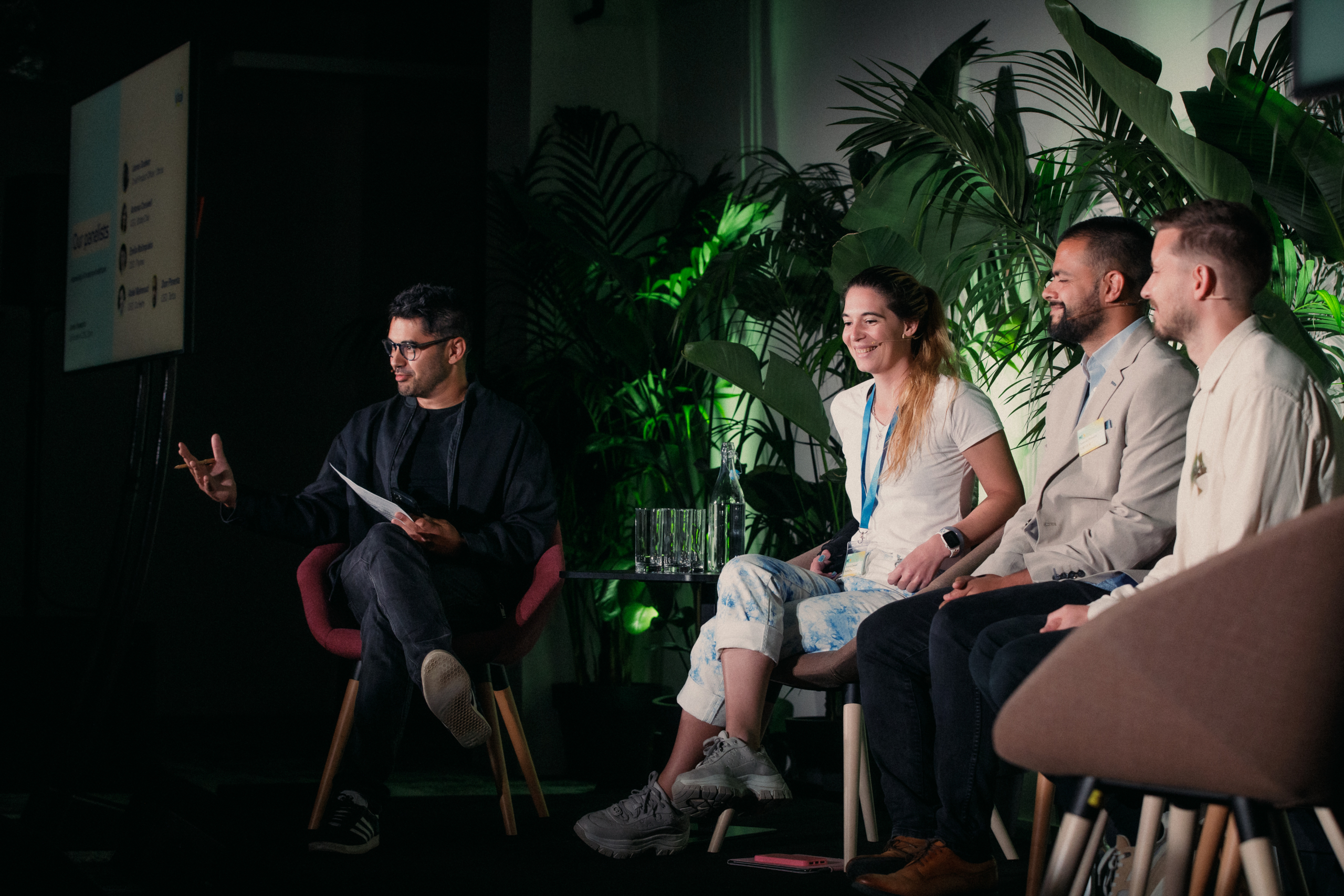
This complexity is a major pain point clinical AI may yet solve. The pioneering CEOs Vital hosted explained that machine learning and AI have tremendous potential to improve healthcare – from augmenting clinical accuracy, improving the efficiency of clinical procedures and automating claims processing, to drastically reducing the admin time of running healthcare businesses. But these businesses must strike the right balance between patient acceptability, clinical adoption and regulatory support to get adopted at scale. We also heard about generative models, yet another layer of innovation in the space and set to transform patient pathways and clinical workflows – from text, to voice, to medical imaging.
Challenging conventions
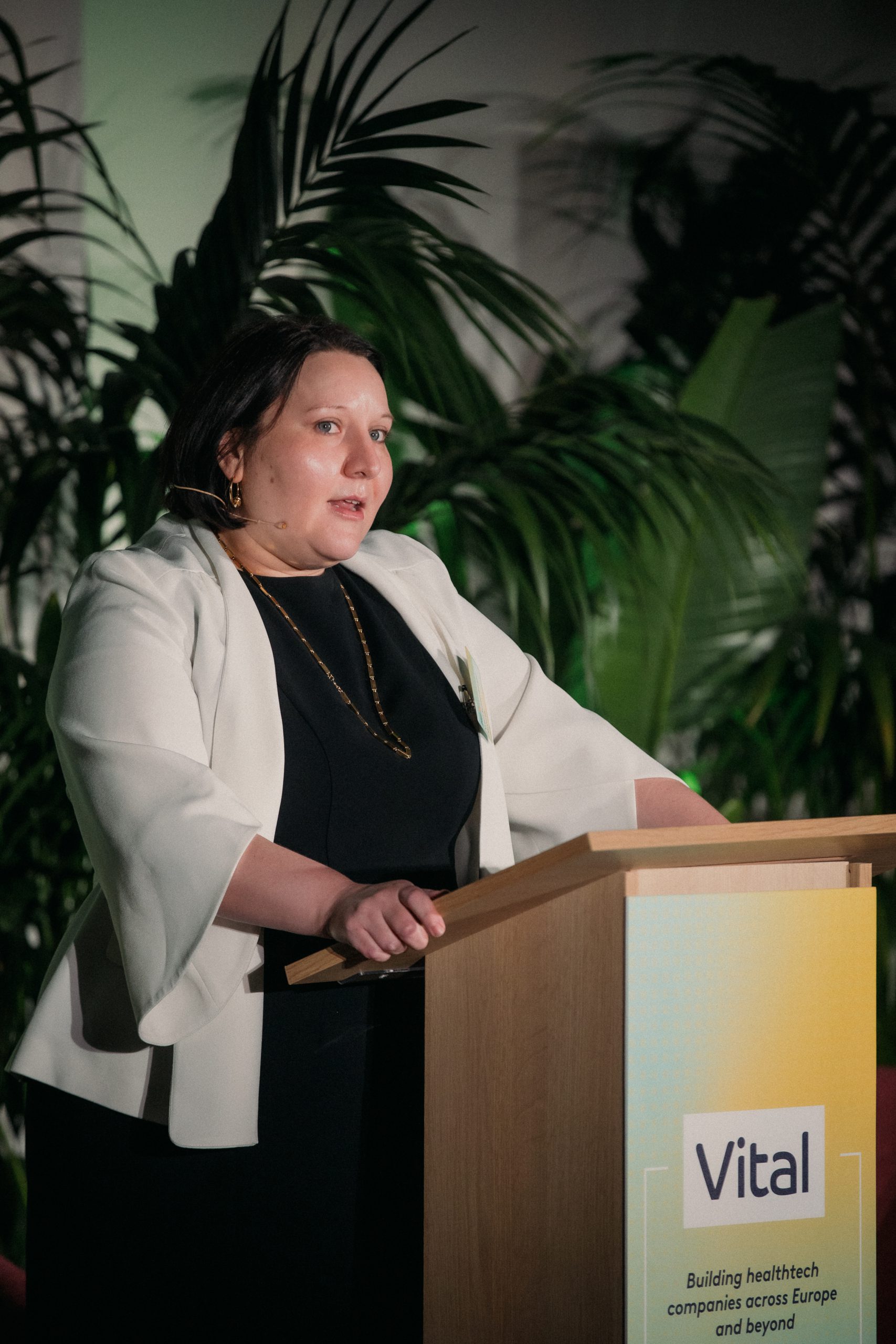
Still, when it comes to building healthtech businesses capable of reshaping healthcare, there was universal agreement on one point. As Dr Vreni Schoenenberger, Global Franchise Head, External Affairs and Partnership Strategy at our co-host, Novartis, said, healthtech start-ups need to solve for friction.
Healthcare systems are imperfect, but they aren’t incentivised to fix themselves. Founders need to be prepared to challenge conventions and norms. To identify points of friction in outdated systems – and to solve for them. The demands on European healthcare are new, and significant. The economic environment is challenging. But healthtech will have a definitive role in shaping the future and improving life for millions, and founders have a starring part to play.














